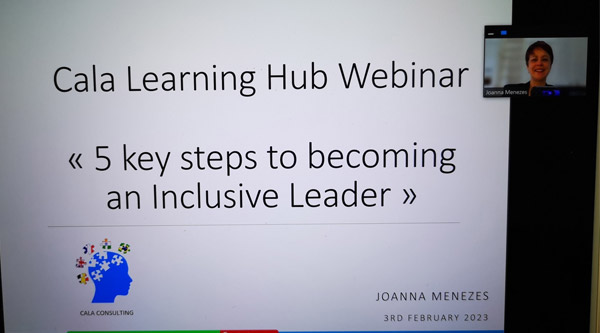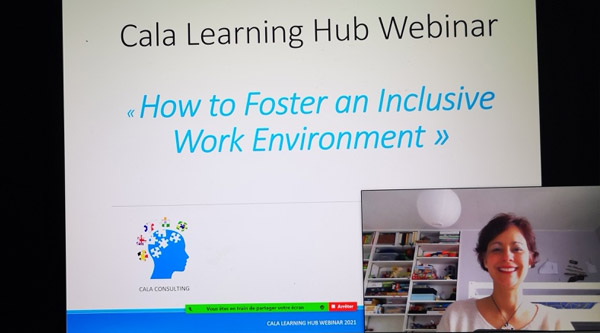The figures are striking: 20% of new employees leave their company within the first 45 days of employment, and almost a third leave before the end of their first year. This shows how crucial the ioboarding process of these employees is for organisations. But how exactly do you do this when you are an HRM or manager? What are the best practices in this area? Joanna Menezes, a coach and trainer specialising in the subject, gave some valuable tips to the members of the Cala Learning Hub network who attended the webinar entitled "5 steps to successfully onboard international employees ."
A long-term process that proves to be a win-win
The onboarding process of a new employee includes activities that familiarise the employee with the organisation, its structure, the culture, vision, mission and values. Onboarding begins from the moment an offer is made until the employee becomes a productive member of the organisation. "This is very important because everything happens in the first twelve months of the employee's tenure in the company," explains Joanna Menezes.
Why is it so important? "There are many benefits for both the employee and the company itself," says Joanna. In addition to building long-term loyalty among new recruits, it reduces their stress, shortens the learning curve and encourages long-term loyalty & commitment.
And what about international employees?
"Between the language barrier, culture shock and difficulties with French administration, there are many challenges to consider in order to welcome and onboard international employees," warns Joanna Menezes. According to the Expat City Ranking 2021 study, professionals who come to work in France generally appreciate the quality of the healthcare system and job security. But these impatriates, as they are called, also deplore the fact that the French language is still difficult to master and that it is hard to make friends... They therefore run the risk of feeling discouraged, anxious and isolated.
5 steps to successfully onboard international employees
1- Helping them settle in under the best conditions
This means meeting all their relocation needs: assiting them in filling in the necessary documents (work permit, health insurance, tax declaration...), ensuring that their family is well supported (accomodation, children's schools, spouse's career)...
2- Setting the employee up for success
The objective is to ensure that they understand their role, duties and responsibilities (job description, organisation chart, etc.), as well as the company's expectations.
3- Breaking down cultural barriers
It is imperative to help them adapt to the customs and language of the country and to prepare for culture shock. This involves, for example, assigning them a buddy or mentor, organising intercultural training or coaching and providing them with an employee handbook on how to live and work in France.
4- Supporting them in building their network
By facilitating their meetings with other work colleagues, exposing them to networking opportunities and organising team-building events to strengthen team spirit. This is an effective way to combat isolation and loneliness.
5- Arranging regular check-ins
The idea is to remain available and attentive to difficulties that may arise and preventing them from becoming real problems. This can be done, for example, by setting regular meetings and by following up on the training and coaching programmes that have been set up.
Would you like to join us at our next free webinar ? Check out our programme and save the date!

Blog article written by par Laure Blancard : https://www.linkedin.com/in/laure-blancard/







 Copyright © 2016 - 2026 - Cala Consulting
Copyright © 2016 - 2026 - Cala Consulting